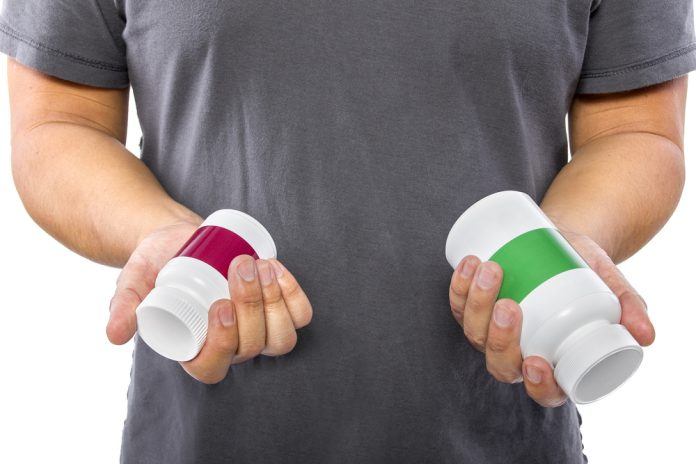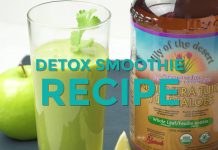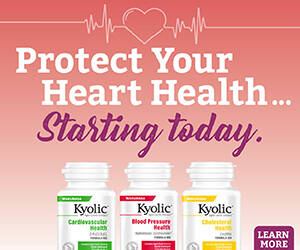
When you decide to take nutritional and herbal supplements, you do it with the expectation that they will provide the benefits you are seeking. Whether you’d like an energy boost, a little help with cognitive function, a heart-friendly product, something to aid digestion or other gastrointestinal issues, or some assistance in the bedroom, nature often has a way of filling the gaps.
Finding the right supplements, however, can be a challenge. Choosing products that deliver what they promise in terms of the quantity and quality of the ingredients is critical. After all, you don’t want to waste your money and efforts on a product that says it provides 10 percent standardized extract when it really contains only 2 percent or a product that does not use pure ingredients or ingredients other than those listed on the label.
Once you find supplements that have undergone high-quality testing (and this is a two-step process), you need to find which ones are the best for the results you want. We can help you make those choices. Let’s begin, however, with the two types of testing that are behind superior supplements.
Read about 7 supplements to get you (and your family) through cold and flu season
Supplement testing 101
According to a recent (October 2019) report in Consumer Reports on choosing supplements wisely, “don’t expect much help from the pharmacist or other staffers.” The report went on to state that “in most cases, pharmacists weren’t familiar with potential risks for the supplements on their shelves.”
Your job as a consumer is to look for supplements and their manufacturers who properly test their products and thus deliver what they say they do. To help you with that task, here are some of the testing techniques and procedures that should be done for all supplements to help ensure an effective, safe product.
Supplement testing part 1-Manufacturer testing
Before you buy a supplement, it’s suggested you check out the manufacturer’s website and read about the quality assurance testing they employ. For example, our partner, New Roots Herbal has extensive information about their testing that you can find on their site under Analytical Testing. A high-quality supplement maker should be able to quality test every ingredient in their products, including raw and processed, as well as the end product, and the tests should be conducted by specialists with experience in qualitative and quantitative testing. Preferably, these experts should collaborate with naturopaths and/or PhDs in the field.
What are these experts testing supplements for?
They should be ensuring that the ingredients match the claimed species and that the potency meets the standards. Ingredients also need to be tested to make sure oxidation has not occurred and compromised the quality of the item. All ingredients should be tested for the presence of contaminants, including heavy metals, pesticides, solvent residues, total PCBs, aflatoxins, mycotoxins, dioxins, and microbes.
Supplements also need to be tested for their ability to dissolve in the stomach or otherwise become bioavailable. This process is known as disintegration testing, and it’s important because a supplement that is not bioavailable is useless.
Supplement testing part 2-Third-party testing
The second part of the testing process involves a third-party reviewer. Because the Food and Drug Administration doesn’t monitor supplements the way it does prescription and over-the-counter drugs, they can’t verify that the products don’t contain contaminants such as pesticides, heavy metals, and bacteria. That’s where groups such as the not-for-profits NSF International and US Pharmacopeia, and the for-profit ConsumerLab.com can be helpful. NSF International is a nonprofit that offers NSF Contents Certified and NSF Certified for Sport certifications.
Supplements to support your entire body
Which supplements do you need? That’s an individual choice, based on your unique biochemistry, nutritional needs, current health status, age, genetics, and other factors. However, experts have identified some of the natural supplements that can complement and help support various systems in the body.
Read about are your herbal supplements contaminated?
Here are some for you and your physician to consider. Take doses recommended by a professional healthcare provider and based on your unique situation.
- Brain and mental health supplements. Some of the supplements that can help with brain function and mental health include vitamin B12, medium-chain triglycerides (MCTs, such as coconut oil), lavender oil, GABA, ginkgo, glutamic acid, Gotu kola, taurine, theanine, tryptophan, and the omega fatty acids.
- Cardiovascular health supplements. Want to help keep your heart and blood vessels healthy? Cardiovascular supplements to consider include carnitine, coenzyme Q10, curcumin, D-ribose, flaxseed, ginkgo, grapeseed, green tea, hawthorn, L-arginine, L-lysine, L-taurine, L-tyrosine, olive leaf extract, and red beet.
- Digestion and gut health. You’ll find lots of candidates in this category. They include curcumin and piperine, acidophilus, biotin, calcium D-glucate, colostrum, digestive enzymes (betaine, pancreatin, papain, pepsin), ginger, red beet, turmeric, psyllium, goldenseal, probiotics, Gotu kola, l-glutamine, l-tryptophan, licorice root, milk thistle, garlic, papaya, wormwood, and yellow dock.
- Overall health supplements. Supplements that fall into this category can include a wide variety of antioxidants, amino acids, enzymes, essential fatty acids, essential oils, fermented foods, glandular extracts, green foods, and teas.
- Sexual health. These suggestions are for men and women. Check with your doctor before using any of them. They include horny goat weed, maca, Panax ginseng, and Tribulus Terrestris.
Bottom line
High-quality supplements can complement your diet, ease symptoms, and help you overcome the constant barrage of stressors from your environment and compensate for when your diet falls short of essential nutrients. Investigate the use of natural supplements to help support and promote your immune system as well as other bodily systems, and look for manufacturers that provide high-quality testing and control.
Read more about nurtients you can supplement:
Take Magnesium To Relieve These 6 Health Conditions
Vitamin D Deficiency: How Do You Know If You Have It?
Sources
Loria K. How to choose supplements wisely. Consumer Reports 2019 Oct 30
Nall R. What to know about GABA. Medical News Daily 2019 Oct 30
Sayorwan W et al. The effects of lavender oil inhalation on emotional states, autonomic nervous system, and brain electrical activity. Journal of the Medical Association of Thailand 2012 Apr; 95(4): 598-606










